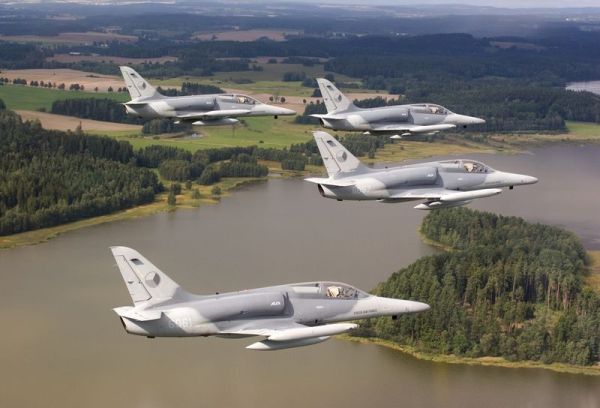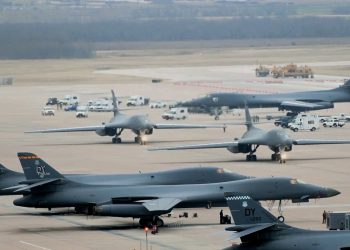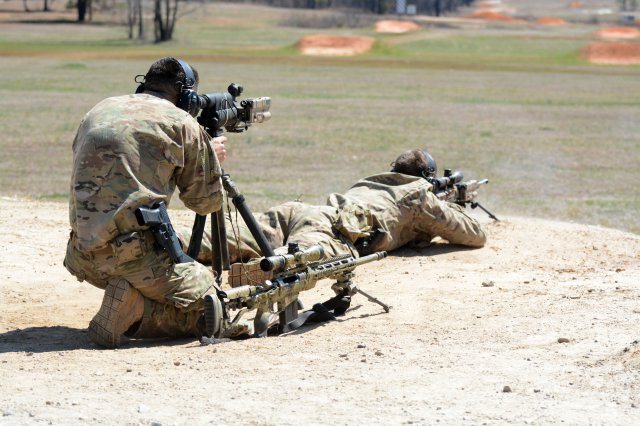The planned sale of the redundant L-159 combat planes to Iraq may fail for three reasons: the Czechs may not be able to quickly deliver the planes, the Czech military may consider the sale unprofitable, and a new Iraqi government may reject the sale, daily Lidove noviny (LN) writes yesterday.
The aircraft producer, Aero Vodochody, and Iraqi officials agreed on the sale of 12 old L-159s for $200 million on Sunday, the paper writes. Iraq wants to get the light combat planes by September.
The Czech military bought 72 L-159s subsonic fighters in the late 1990s, but it had no use for half of the aircraft. As a result, 36 of them have been mothballed.
Twenty-four of the mothballed planes can be prepared relatively soon for sale, LN writes. However, half of these 24 old L-159s is reserved for the U.S. Draken International company, with which the Czech Defence Ministry has been negotiating for several months.
The Iraqi military thus could get 12 planes, but Iraq wants two of them to be in a two-pilot version for its training. This means that the Czechs need to rebuild four L-159s and it is unclear what planes could be used for this purpose, the paper writes.
The Czech military has been trying to sell the L-159 for a long time, but it has never succeeded so far. The Czech Republic negotiated about the sale with Kenya, Egypt, Jordan, Israel, Bolivia, Afghanistan, Poland, Greece and Slovakia, LN writes.
It notes that the United States blocked the sale several times.
The L-159 aircraft includes many U.S. components and the U.S. government must issue an export permit for them.
The paper points to “the grotesque role” that the L-159s played in the controversial purchase of four CASA transport aircraft by the Czech military a few years ago: as the Spanish aircraft maker swapped one CASA for five L-159s, there was no tender for the 3.5-billion-crown contract.
Two of the L-159s eventually returned from Spain to the Czech Republic, LN adds.
Iraq showed interest in new Czech combat aircraft in 2012, but it finally decided to buy FA-50 planes from South Korea last December. But Iraq did not buy the Korean planes in the end.
In September, Baghdad should get F-16 supersonic fighters from the United States. As Iraqi pilots need training, Baghdad renewed talks with Czechs about the L-159s, the paper says.
Another factor that will influence the signing of the L-159 contract is the political situation in Baghdad. A parliamentary election will be held on April 30, which will be followed by complicated political negotiations.
The new parliament will choose a president who will appoint a prime minister whose government must approve the contract for the purchase of L-159s.
After the Iraqi elections in March 2010, the political negotiations about the formation of a new government took eight months, the paper writes.
Another weak point of the contract is the future of the producer of the L-159s, Aero Vodochody, which mediates the sale to Iraq. The owner of Aero Vodochody, Penta Investments, said in 2013 that it is ready to sell the aircraft maker if there is an attractive offer. In February, it changed its mind because of Aero’s profits and it wants to keep the company for at least two years.
The paper says Penta might have released information on the sale of L-159s in order to make Aero Vodochody seem a more attractive company.
The price of the 12 old L-159s is $200 million, or about four billion crowns according to LN’s sources. But the profit of the Czech Defence Ministry would be markedly lower. Aero is the mediator and it will buy the planes from the military, probably for 30-40 million crowns per plane. The military could get about 400 million in total.
Draken International is to pay about 250 million crowns for 12 L-159s plus two planes for spare parts.
If the contract with Iraq meant a lot of work, the military would prefer the sale to Draken, which may be interested in another 14 planes.
The Czech military has been paying for the maintenance of the mothballed L-159s to Aero. Even if it sold the planes for a low sum, it would therefore save the money for their maintenance, LN writes.
The military has paid over 250 million crowns for it since 2006, when the L-159s were mothballed, the paper says.










